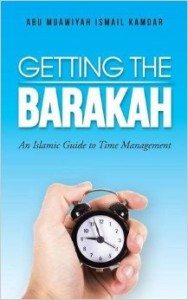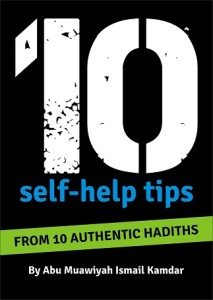FREE CHAPTER from Ahmad Climbs A Mountain
The following free chapter is chapter six of Ahmad Climbs A Mountain. The latest self help eBook from Islamic Self Help’s founder Ismail Kamdar.
You can read the chapter below or download the PDF here. This chapter will give you a taste of the awesome content you will find in our latest eBook.
The full eBook is currently available for purchase at Payhip, Gumroad, and Amazon.
Here is chapter six of Ahmad’s journey. Enjoy!
Chapter Six: The Valley of Self-Doubt
Ahmad climbed for a few more days. He stopped at nights to rest in various caves and inns along the way. He was surprised to find that there were many inns operating along the mountain path. He had always assumed nobody climbed the mountain at all.
Yet as he climbed, he kept running into people. Some were resting. Some had given up and were headed back. Others had stopped at certain points and settled there.
The innkeepers fell into this last category. They did not have the determination or motivation to keep climbing to make it to the other side. But they recognized a need for inns at every significant point on the path. So, one by one, people settled at strategic stops on the mountain and set up inns to assist the travellers.
Ahmad was grateful for these inns, as they provided moments of comfort on what was otherwise an uncomfortable climb.
On the third day of climbing, Ahmad reached a valley-like segment of the mountain. There was a steep downhill incline into a small enclosed area, surrounded by the mountain’s tall wall-like slopes.
In this valley, there was an inn called “The Doubters Club,” and it was surprisingly crowded. Ahmad entered the inn and found over two dozen middle-aged people drinking coffee, hanging around, chatting, playing cards, and just having a good time.
He booked a room for the night and settled down at a corner table to have a cup of coffee. As he sat and waited for his coffee, Ahmad was joined by two middle-aged men. He recognized them as the two men he had seen playing chess when he first entered.
They had finished their game, noticed the newcomer, and decided to welcome him. “My name is Abdul,” said the first man, “and this here is Rashad. What brings you this high up the mountain, kid?”
Ahmad introduced himself and explained his purpose. The two men had a good laugh. Rashad explained why, “We were just like you when we first set off. But the higher we climbed, the harder it got. We realized then that we were never going to make it. So why bother?”
Abdul continued, “So, we settled here in this valley and opened this inn. We realized that there would be many more like us – foolish youngsters who think they can climb the mountain – so we provide them with some fun instead. Why try what you can’t do, hey?”
Ahmad did not understand what was going on. Were these two men seriously trying to talk him out of his goal? They didn’t even know him and already assumed he couldn’t succeed.
“What makes you think I can’t climb this mountain?” Ahmad replied. “Many others have done so before.”
“Not that many,” Abdul replied, “Many more stop here and turn back. Few make it beyond this point. Let me ask you this: have you ever climbed a mountain before?”
“No, but…” replied Ahmad. He wasn’t given time to complete that thought.
“So, you have no experience then!” Rashad said. “You are chasing a dream without any experience, skills, guide, or assistance. How foolish is that? You should just back out now while you still can… People die further down the road.”
“I tell you what,” said Abdul, “spend a few nights here. Enjoy the entertainment we have to offer. Think it over, and be realistic. I’m sure you’ll make the right choice then. Don’t go throwing your whole life away over a foolish dream.”
With that, they left Ahmad alone with his coffee and his thoughts. Ahmad spent the night at the inn but did not get much sleep. He was consumed with thoughts of self-doubt.
What if I fail?
What if there is nothing better on the other side?
What if I am wasting my time?
What if I am wasting my youth?
What if something happens to my family while I am away?
What if I die?
The “what ifs” flooded his mind one by one, and they were unbearable. Ahmad had not experienced such extreme negative thoughts before. He generally considered himself an optimist and a dreamer.
However, these questions did seem very realistic to him. They made sense. They were grounded in logic. And they all pointed in one direction: Run away!
Run back to the comfort of your home and do not chase any scary dreams. Why risk the hard route when an easier one exists?
Filled with such dreadful thoughts, Ahmad decided to pray for guidance again. He stood for fifteen minutes in prayer that night. After praying, his mind continued to fill with “what if” thoughts, but this time they were different:
What if I never try?
What if I go back and regret not trying and the regret lasts for the rest of my life?
What if something life-changing lies on the other side?
What if I can do it, and I never find out because I turned back too early?
What if I am about to accomplish something amazing?
What if I am closer to my goal than I think?
What if this is the one thing I need to do to truly enhance the quality of my life?
These new thoughts gave Ahmad perspective. There will always be questions, doubts, and fears. But the pain of not knowing whether we are capable is worse than the pain of trying and failing.
He was now determined to put the doubts aside and push forward towards his goal.
The next morning, Ahmad woke up early and continued on his journey. He left quietly without meeting the doubters; he certainly did not want to deal with their negativity again. Leaving them behind, he set on up the mountain accompanied by his renewed self-confidence.






